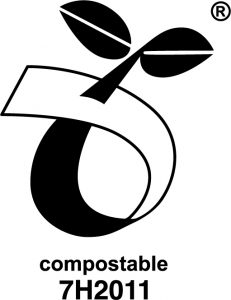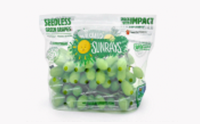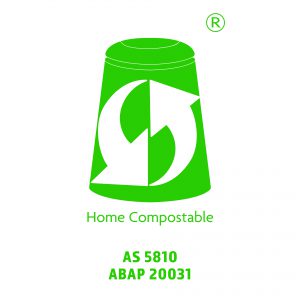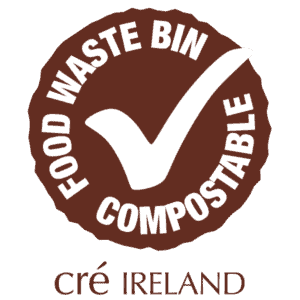Sustainability at TIPA®
At TIPA®, sustainability is not only an integral part of our strategy – it is the essence of our existence.
In 2010, when TIPA® co-founder and CEO, Daphna Nissenbaum realized that packaging was unavoidable, and asked herself, how can we package without the polluting plastic?
Over a decade later, her dedication to an organic packaging solution inspired by nature has replaced thousands of tons of conventional plastic.
It is our belief that by providing the market with sustainable alternatives to plastic, we can encourage a better end-of-use cycle for packaging across the industry. TIPA® provides compostable solutions for the entire packaging chain of supply in order to promote, support, and inspire top-down solutions for the world’s consumers.
Our environmental commitments and goals are embedded in our mission, strategy, and code of business conduct, and we are committed to running our business in a long-term sustainable manner as fellow members of a circular economy. We hope to encourage sustainable change with our technology and by our example.
Why Compostable Packaging?
Compostable plastic packaging addresses the challenges of plastic pollution from the design phase. It offers a packaging alternative that mimics perfectly the positive properties of a conventional plastic packaging such as moisture and oxygen barrier, shelf-life, lightweight design, and flexibility, but with a built-in circular solution for its end-of-use.
Plastic packaging is a complex system and requires different types of packaging for different types of usage, and therefore requires different types of solutions. Flexible films and multilayered packaging are playing an essential role in protecting the freshness and nutritional value of our food because it is low weight and convenient for transport and use.
The challenge with conventional flexible plastic packaging
The challenge with conventional flexible plastic packaging is that it is nearly impossible to technically recycle thin films and multilayered plastic packaging and it is surely isn’t economically viable to do so. This results in recycling levels for flexible packaging that hover around 3% even in the most advanced markets such as the EU, the rest is being sent to incineration or landfill, or even worse, left in the open environment, polluting our oceans, soil and water.
For this reason, TIPA® is uniquely focusing on flexible and multilayered packaging: a type of packaging that while vital for our global supply chain, is not technically or economically viable for recycling and is causing a major pollution challenge worldwide.
If your packaging is certified ‘compostable’, you can be sure that it will disintegrate within—at most—180 days under compost conditions. We believe that by providing a certified compostable alternative for this non-recyclable material our company is offering a circular solution to its clients that can revolutionize the approach to flexible packaging which is essential for a transition towards a circular economy to a more sustainable future.
Circular Economy
TIPA is pleased to be a signatory to the New Plastics Economy Global Commitment.
Launched in October 2018, the Global Commitment now has over 400 organizations committed to eliminating problematic and unnecessary plastic packaging, and undertaking innovations so that all plastic packaging is 100 percent reusable, recyclable, or compostable, as well as safely and easily circulated without becoming waste or pollution.
From the very beginning our company has been funded on the 3 principles of the circular economy as defined by the Ellen MacArthur Foundation:
1. Design out waste & pollution – By offering a compostable alternative to a non-recycable material we help to address this pollution problem from the design phase, which allows a circular end-of-use to flexible and multi-layered packaging.
2. Keep products & materials at their highest value at all times – TIPA packaging is playing a key role in protecting and keeping 3 essential products and materials at their highest value:
- Food – in certain cases plastic packaging is essential in order to ensure the safety and hygiene of our food, to prolong life-shelf and prevent food waste, and to maintain the nutritional value of products. Flexible packaging is fulfilling these functions very effectively, however, it’s posing a major challenge in terms of end-of-life, as described above. By eliminating this challenge through material innovation, TIPA compostable packaging helps to keep food safe, fresh, nutritious and reduce the negative impacts of food waste.
- Organic Waste – Today, although organic waste amounts to over 40% of municipal waste, only about 3% of it is being captured and valorised for organic recycling (composting, AD or biorefineries). The rest is being sent to landfills and incineration much due to the high prevalence of plastic packaging that is too intertwined within our foods to allow effective separation at source. Substituting the packaging material from conventional to compostable packaging will allow to dramatically increase the amount of organic material being captured, kept clean of plastic contamination and being suitable for organic recycling and reuse.
- Soil – one of the most prominent sources of soil contamination is plastic food packaging, especially the flexible type, often coming from improper disposal at source which leads to the mixing of conventional plastic packaging with organic waste. In geographies that are practicing the usage of compostable bags and packaging at scale, such contamination and impurities have decreased dramatically, leading to a better compost and soil qualities, and more sustainable farming practices.
3. Restoring natural systems- Instead of simply doing less harm, our materials are designed to support the generation of a positive value -rebuilding the global topsoil. Soil around the world is losing organic matter at an unsustainable rate due to land use changes, modern agricultural practices and climate change. It is estimated that almost half of European soil has low organic matter content, which reduces its ability to retain water and nutrients, and to store carbon. Crucially, this reduces the productivity of the land and farmers’ ability to grow crops. Collected bio-waste generates compost, which may be a useful source of stable organic matter. This process results in a mixture of organic carbon compounds that contribute to the soil’s carbon pool. Studies have shown that by including certified compostable plastics and packaging in definitions of biowaste, organic waste collection schemes can collect up to six times more organic waste from households as opposed to without (ZWE Report). This helps to produce more compost that in term will help to replenish soil and contribute to the rebuilding of a healthy ecosystem.
TIPA works together with global bodies to support the transition to a circular economy.
Working Together
We pride ourselves on being part of a global community of changemakers. TIPA is working in collaboration and is a member of the:
We work with the following bodies to encourage global legislation in favor of including certified compostable plastics in organic waste recycling:

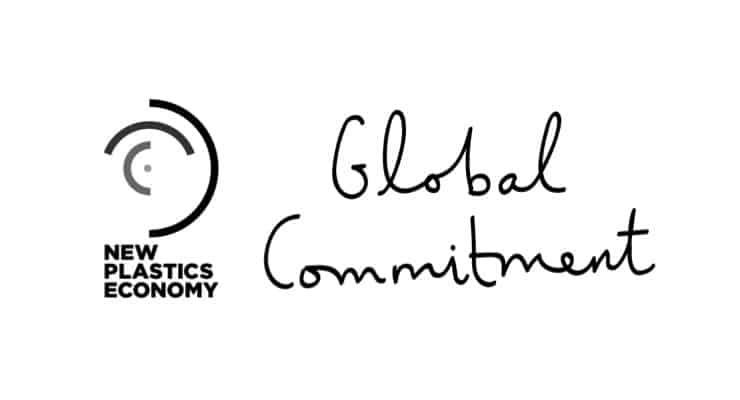

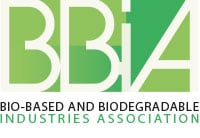


Composting TIPA® at Home
When you’re finished with your home compostable TIPA® packaging, place it in your home composter with other organic waste.
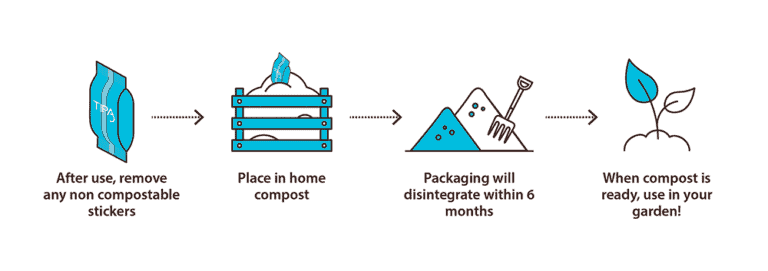
If you’re new to home composting:
Composting is one of the world’s most natural recycling systems. It describes a process where living micro-organisms break down organic matter (fruit, vegetables, branches, leaves, compostable packaging, etc.) into compost, or rich soil.
Composting Conditions:
The temperature and humidity of your home compost will vary. Standard home compost temperatures tend to hover at 25 ± 5 ᵒC, with a target humidity of around 50%. Under normal composting conditions, your packaging will disintegrate within 6 months, and fully degrade within a year.
Certified home compostable:
TIPA®’s home compostable packaging is made from fully biodegradable materials that will completely disintegrate in home compost within 180 days.
TIPA®️ abides by standards of compostability, EN 13432, ASTM D6400, AS 4736/AS 5810 and TÜV OK Compost Home. Our home compostable products are certified by TÜV Austria and ABA.
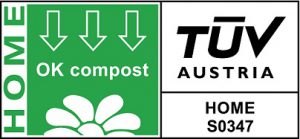
There are a lot misinformation regarding recycling vs composting that we clear in this article.
There are lots of ways to create your own home compost, learn more on our blog!
Please do not try to recycle TIPA® films or packaging, as they are not recyclable and will have to be removed from the recycling stream.
TIPA®’s compostable packaging is not meant to be disposed of in marine environments or land ecosystems and should be disposed of in the proper waste stream where it will biodegrade into compost.
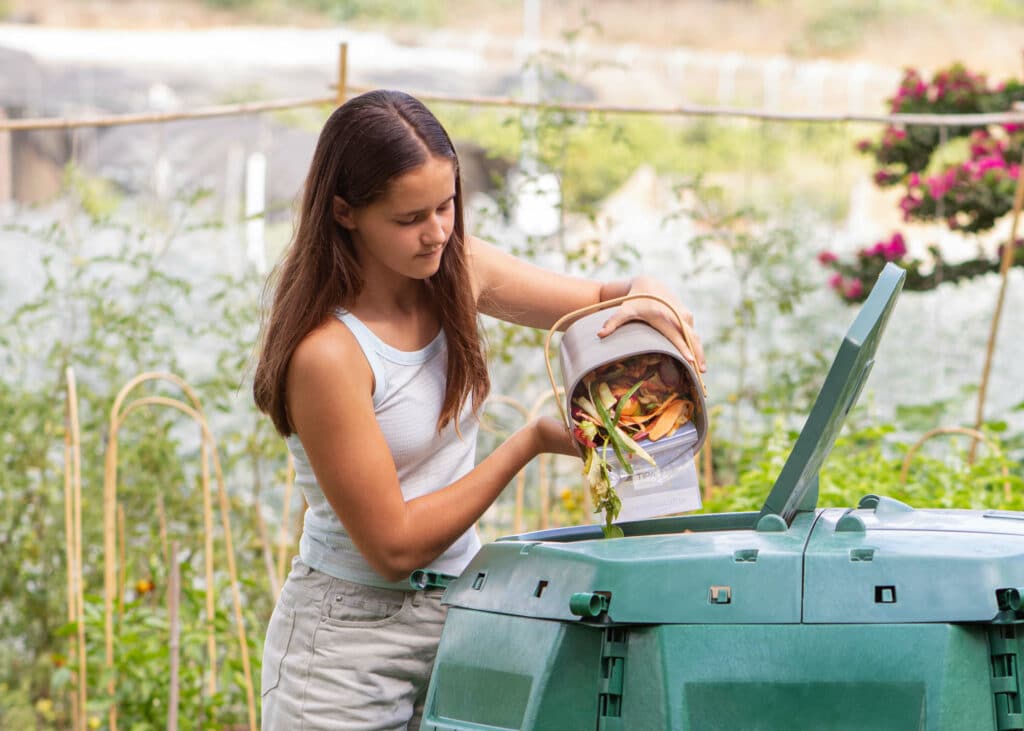
Composting TIPA® in an Industrial Compost
TIPA’s certified compostable packaging is designed to be collected and processed along with food and organic waste. Where local authorities permit, place TIPA® Compostable packaging in organic waste bins for collection or drop it off at your local compost site with your yard and organic waste.
What is Industrial composting?
Industrial or commercial composts are large-scale composts designed to handle a large volume or organic waste, where the compost produced is typically packaged and sold to plant nurseries and individuals, or it is sold in bulk to farmers and landscape companies. Industrial composting is a commercially mechanized process with robust quality controls and regulatory standards. The compost piles are closely monitored with a sustained temperature and measured inputs of feedstock to ensure rapid biodegradation.
How does Industrial composting work?
Step 1: Consumer’s sort food waste, yard waste, and certified compostable packaging.
Step 2: Compost is collected from curbside pickup from homes, restaurants, hotels, parks, or brought to a compost site by individuals.
Step 3: The organic waste undergoes a natural, biologically active process that transforms the food scraps and yard waste into nutrient rich compost. The conversion of your organic waste to compost uses a variety of different processes and typically takes several months to properly cure. Proper curing is an important part of making a mature compost.
A mature compost is considered a ‘super soil’. Mature compost provides valued nutrients to support regenerative agriculture and plant health. Compost balances soil pH levels and retains more water which helps plants with draught conditions and reduced erosion.
Certified Industrially Compostable:
TIPA®’s home compostable packaging is made from fully biodegradable materials that will completely disintegrate in industrial compost. TIPA®️ abides by standards of compostability, EN 13432, and ASTM D6400 and AS 4736
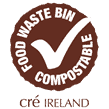
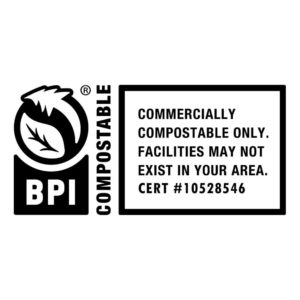
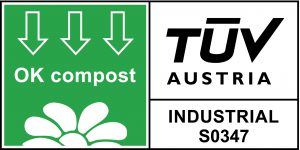
Do not recycle. Please do not place TIPA® packaging in any plastic recycling bins along conventional plastic. Our compostable products should not be mixed with plastic and will need to be removed from the plastic recycling stream.
TIPA®’s compostable packaging is not meant to be littered or disposed of in marine environments or land ecosystems and should be disposed of in the proper waste stream where it will biodegrade into compost.
TIPA’s films and laminates are certified compostable by the following bodies:

